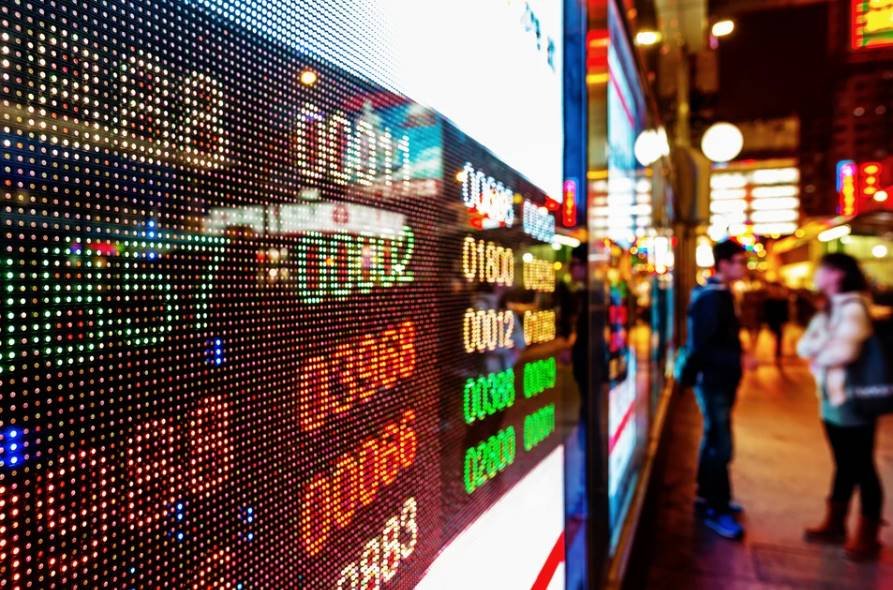Hong Kong’s Hang Seng index suffered a sharp drop of over 2% on Monday, as investors were spooked by the troubles in the property and technology sectors. The index closed at 25,281.15, its lowest level since November 2020, with only four of its 50 constituents ending in positive territory.
The property sector was the worst performer on the HSI, losing 4.65% as a whole. The biggest loser was Country Garden Holdings, which plunged 10.33% to a record low of HK$7.01 after it announced that it will suspend the trading of 11 onshore bonds worth 33.8 billion yuan ($5.2 billion) due to “recent changes in market conditions.” The company said the suspension will take effect from Monday and the resumption of trading will be determined separately.
The suspension raised concerns about the liquidity and solvency of China’s largest property developer by sales, as well as the broader real estate market in China, which has been facing tighter regulations and slower growth amid the Covid-19 pandemic.

Other major property developers also suffered heavy losses on Monday, such as China Evergrande Group, which fell 9.5% to HK$6.66, China Vanke Co., which dropped 7.34% to HK$24.55, and Sunac China Holdings, which slid 6.88% to HK$26.05.
Tech sector under pressure from antitrust probe and US sanctions
The tech sector was also under pressure on Monday, losing 3.03% as a group. The sector was weighed down by the news that China’s antitrust regulator has launched an investigation into Meituan, the country’s largest food delivery platform, for alleged monopolistic practices.
Meituan’s shares fell 6.77% to HK$266.6, while its rival Alibaba Group Holding, which is also facing antitrust scrutiny, declined 2.64% to HK$206.4. Tencent Holdings, China’s largest social media and gaming company, also dropped 2.58% to HK$589.
The tech sector was also affected by the US sanctions on seven Chinese supercomputing entities for allegedly assisting China’s military efforts. The US Commerce Department said on Friday that it will add Tianjin Phytium Information Technology, Shanghai High-Performance Integrated Circuit Design Center, Sunway Microelectronics, the National Supercomputing Center Jinan, the National Supercomputing Center Shenzhen, the National Supercomputing Center Wuxi and the National Supercomputing Center Zhengzhou to its Entity List, which restricts their access to US technology and software.
The move could hamper China’s ambitions to become a global leader in supercomputing and artificial intelligence, as well as hurt its semiconductor industry, which relies heavily on US suppliers.
Asia markets mixed amid Covid-19 resurgence and earnings season
Other Asia-Pacific markets were mixed on Monday, as investors were cautious amid the resurgence of Covid-19 cases in some countries and the start of the earnings season in the US.
Japan’s Nikkei 225 fell 0.44% to 29,538.73 and the Topix lost 0.28% to 1,956.56. Japan reported more than 4,000 new Covid-19 cases on Sunday, the highest daily tally since late January, as several prefectures imposed stricter measures to contain the virus.
South Korea’s Kospi was down 0.63% to 3,135.59 and the Kosdaq saw a larger loss of 1.22% to 968.42. South Korea reported 587 new Covid-19 cases on Monday, bringing its total caseload to over 110,000.
Australia’s S&P/ASX 200 was 0.48% lower at 6,974.00, as the country faced a setback in its vaccination program after health authorities recommended that people under 50 should avoid taking AstraZeneca’s Covid-19 vaccine due to rare blood clotting issues.
On Friday in the US, markets ended the week mixed, with the Nasdaq Composite ending Friday 0.6% lower and notched its second consecutive losing week in 2023, pulled down by a selloff in semiconductor stocks such as Advanced Micro Devices , Nvidia and Micron . The S&P 500 inched lower by 0.1%, while the Dow Jones Industrial Average added 0.3%, helped by advances of 2.1% and 1.8% in Chevron and Merck & Co., respectively.
The US earnings season kicked off on Monday, with JPMorgan Chase, Goldman Sachs and Wells Fargo reporting their first-quarter results before the market open.